Aznavour - Hier Encore (Yesterday, When I Was Young)
| Latin French, Italian Notes |
Aznavour - Hier Encore (Yesterday, When I Was Young)
Although Charles Aznavour is considered by many American fans to be France's Neil Diamond, thanks to a rather misguided attempt by Reprise Records to cast him as a Middle-of-the-Road crooner in the '60s, in his native France he's a national treasure on par with Sinatra or Elvis. Hier Encore is a perfect introduction not only to Aznavour, but to all he represents.
Hier Encore (Yesterday I Was Young)
Charles Aznavour is perhaps the best-known French music hall entertainer in the world. His status as the quintessential French popular culture icon is something of an irony for a man who identifies himself most closely with his Armenian heritage. He was born Varenegh Aznavourian in May 1924 in Paris, while his parents awaited a visa to the United States. His legacy was strictly musical. His father was an opera singer, and his mother an operetta "Soubrette," both of them Armenian, who were in France having fled massacres in Turkey.
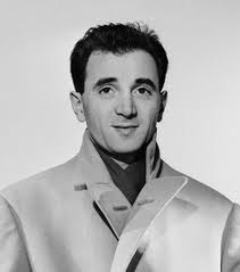
Charles Aznavour
While Charles and his sister Aida were raised in what was described as "an atmosphere bathed in music and poetry," grinding poverty in the immediate post-war world in France was a daily fact of life. The brother and sister were forced to abandon schooling to accept paying jobs playing children's roles in neighborhood theaters and singing in cafes. During one of these assignments, Charles first heard a recording by the immortal Maurice Chevalier, which made him think to himself, "I too will be a singer."
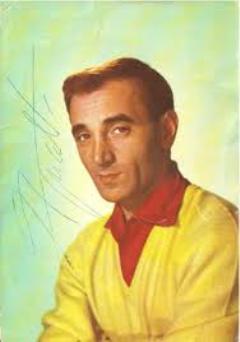
Charles Aznavour
He channeled some of his energy into theater, making both his stage and screen debuts at age nine, in 1933. As an adolescent, he danced in nightclubs and sold newspapers, as well as touring with theatrical companies. He learned to overcome his fears about his vocal limitations, in part with help from singing legend Edith Piaf, for whom he worked as a chauffeur, among other capacities; with her help, he developed a style that suited his capabilities and played to his strengths and also continued writing songs in earnest, some of which were performed by Piaf.
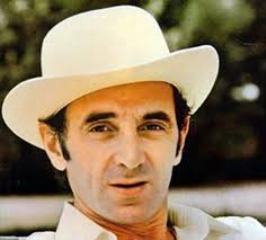
Charles Aznavour
His success came very slowly, however. While a following developed for his songs, his efforts at a solo performing career were riddled with failure. Critics greeted him with derision, but he was encouraged by Trenet and later by the great Piaf herself, who had told him, "You will make it."
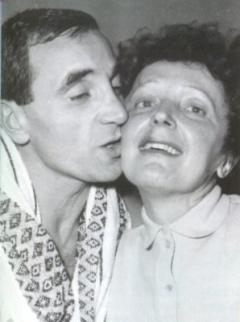
Aznavour and Piaf
Following a 1955 appearance at Bruno Coquatrix's famed Olympia in Paris, he scored his very first major song hit, "Sur ma vie," and at last the name Aznavour and his songs became recognizable entities on the radio. In 1960 François Truffaut offered Aznavour a major role in his film "Tirez sur le pianiste". Truffaut's film soon proved a box office smash in the States, and Aznavour was suddenly catapulted to fame in America. Indeed, he was soon invited to perform at the prestigious Carnegie Hall in New York.
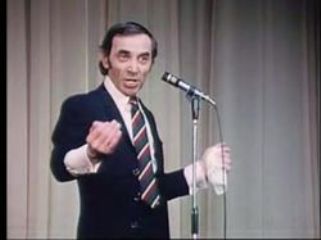
Aznavour at Olympia
From there, Aznavour never looked back. Aznavour took the unique French chanson style and opened it to a wider range of influences while retaining its unique Gallic sensibility. As a result, many, if not most, of those who followed him remain in his debt. Aznavour had achieved international star status and his songs were covered by the greatest singers of the day, including Ray Charles, Fred Astaire, Bing Crosby and many more.
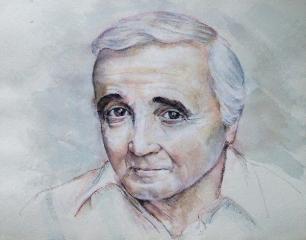
Charles Aznavour
Along the way, he has also been acclaimed for his acting in more than 60 motion pictures. First and foremost, however, Aznavour, will always be regarded as one of France's great songwriters and musical performers, taking his rightful place with Chevalier and Piaf as one of the most acclaimed French artists in the United States, and yes, the entire world as well.
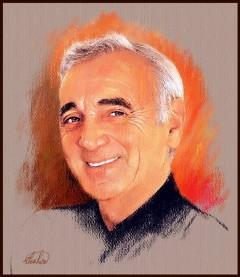
Charles Aznavour
"Hier Encore," whose original French title translates as "Only Yesterday," is a song written by Charles Aznavour and released in September 1964. It was subsequently released in English as "Yesterday, When I Was Young". The English-language lyrics, written by Herbert Kretzmer, tell of a man reflecting on his life. He recounts how he had wasted his youth on self-centered pursuits, and that, now that he is older, he will not be able to do all that he had planned; this implies that he may be close to his impending death.
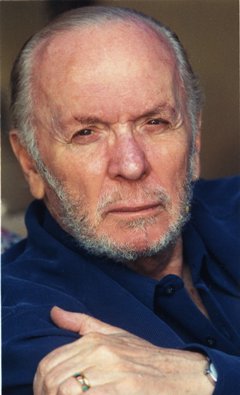
Herbert Kretzmer
In the United States, the best known version was recorded by country music performer Roy Clark. His version became his biggest hit up to that time on the Billboard Hot Country Singles chart, peaking at No. 9 in August 1969, and indeed, it became his only top 40 pop hit, peaking at No. 19.
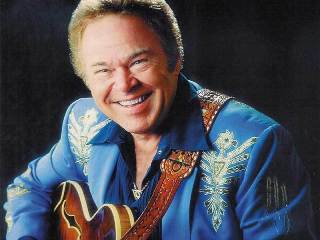
Roy Clark
Hier Encore
Hier encore J'avais vingt ans Je caressais le temps Et jouais de la vie Comme on joue de l'amour Et je vivais la nuit Sans compter sur mes jours Qui fuyaient dans le temps J'ai fait tant de projets Qui sont restés en l'air J'ai fondé tant d'espoirs Qui se sont envolés Que je reste perdu Ne sachant où aller Les yeux cherchant le ciel Mais le cœur mis en terre Hier encore J'avais vingt ans Je gaspillais le temps En croyant l'arrêter Et pour le retenir Même le devancer Je n'ai fait que courir Et me suis essoufflé Ignorant le passé Conjuguant au futur Je précédais de moi Toute conversation Et donnais mon avis Que je voulais le bon Pour critiquer le monde Avec désinvolture Hier encore J'avais vingt ans Mais j'ai perdu mon temps A faire des folies Qui ne me laissent au fond Rien de vraiment précis Que quelques rides au front Et la peur de l'ennui Car mes amours sont mortes Avant que d'exister Mes amis sont partis Et ne reviendront pas Par ma faute j'ai fait Le vide autour de moi Et j'ai gâché ma vie Et mes jeunes années Du meilleur et du pire En jetant le meilleur J'ai figé mes sourires Et j'ai glacé mes pleurs Où sont-ils à présent A présent mes vingt ans?
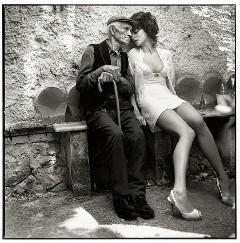
Yesterday When I Was Young
Yesterday when I was young
Yesterday when I was young the taste of life was sweet as rain upon my tongue. I teased at life as if it were a foolish g ame, the way the evening breeze may tease a candle fl ame. The thousand dreams I dreamed, the splendid things I planned I always built alas on weak and shifting sand. I lived by night and shunned the naked light of the day and only now I see how the years ran away. Yesterday when I was young so many drinking songs were waiting to be sung, so many wayward pleasures lay in store for me and so much pain my dazzled eyes refused to see. I ran so fast that time and youth at last ran out, I never stopped to think what life was all about and every conversation I can now recall concerned itself with me and nothing else at all. Yesterday the moon was blue and every crazy day brought something new to do. I used my magic age as if itwere a wand and never saw the waste and emptiness beyond. The g ame of love I played with arrogance and pride and every flame I lit too quickly quickly died. The friedns I made all seemed somehow to drift away and only I am left on stage to end the play. There are so many songs in me that won't be sung, I feel the bitter taste of tears upon my tongue. The time has come for me to pay for yesterday when I was young.
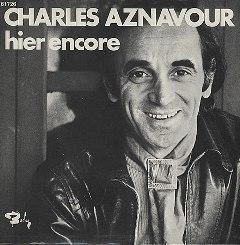
Hiere Encore, singel
